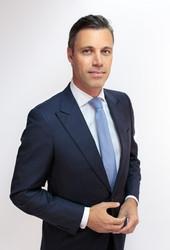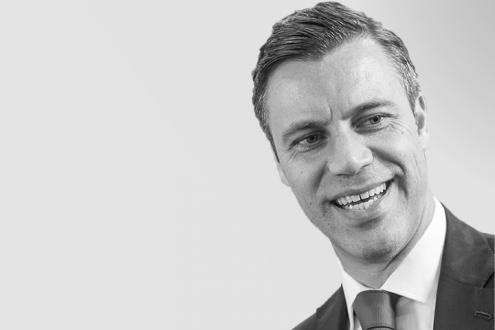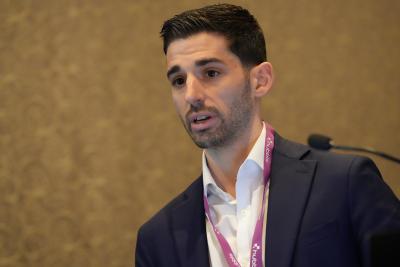The Capital Company’s Harmen Overdijk on Building out the Wealth Offering in Asia and the US

May 28, 2021
Harmen Overdijk is the founding partner of The Capital Company. Based in Hong Kong with an office in Dallas-Fort Worth, Texas, the company is an independent asset management firm offering global as well as Asia-specific investment advisory and related services to wealthy international investors, with especially strong connectivity and expertise linking Asia and the US and vice versa. In addition to its core asset and portfolio management and advisory business, the rise of a class of wealthy global citizens and the increasing number of clients with interests in different jurisdictions around the world has meant that the company has been building its expertise in helping clients consider the various choices and liabilities they may have in terms of cross-border tax and estate planning. Overdijk believes that providing such value-added services in terms of helping clients and families build and protect their asset portfolios is an integral part of the wealth management business, and that this is a unique selling point that differentiates his company's offering from the services provided by traditional private banks or other providers. He met with Hubbis recently by video call to explain how the firm has been weathering the storms of the pandemic, aiming to help keep clients’ portfolios and their as robust as possible for the years ahead.
Hubbis: Briefly, for those not familiar with The Capital Company, what does the firm do and when was it created?
Harmen: We launched in January 2017, and I am co-founder of the firm, together with partners from the Netherlands, the US and Australia. The company was created to provide tax planning and structuring, financial modelling, pension planning, portfolio management, estate planning and insurance services to clients who are considered ‘global citizens’ — for example, Asian families who have cross-border interests in terms of overseas properties and other investments, or children studying or working in the US, the UK or Europe.
It is actually this second category of clients where we see the highest growth in business, in other words families in Asia with global assets and global tax and investment issues.
In the roughly five years since we set out to create the firm, The Capital Company team has grown to include more than 20 people in its Hong Kong office, providing customer servicing as well as advisor and administration support, with new senior advisors coming on board in the last six months.
We have been growing apace, with AUM up more than 30% since the start of 2020. We are enjoying growth in portfolio management, and in the areas of estate and tax planning, especially in the jurisdictions that Asian investors typically favour — the US, UK, Europe and Australia - and building out the team with new experts with specific knowledge, in order to better serve these clients.
Hubbis: What are the key changes you would point to in your business since, for example, the pandemic hit?
Harmen: A key trend we have seen since actually before the pandemic is for more and more Asian families, Hong Kong families mainly, to come to us because a lot of them actually do have a US link, and the link is quite often a son or daughter that goes off to the US to study, likes it there, gets a job at a Google or an Apple or a start-up, or whatever, and stays there and becomes a resident.
Because that makes the family estate planning really complicated, they need help and guidance, and we even have referrals from some of the global brand banks, who recognise our expertise and believe that we can add significant value in these areas for their private clients.
Hubbis: So, how have you been building your team to cope with the rising demand in the region?
Harmen: We are in Asia for Asian clients predominantly today and not quite so driven by the wealthy expatriate type business, although that also remains a focus.
Given our aims and missions, we have recently hired a senior banker from Morgan Stanley, where she has been an Executive Director at Morgan Stanley Investment Management, and as she is Chinese American, she has strong connectivity to this region and also to the US, of course.
And Aleksey Mironenko joined us last August from Premia Partners, a good move for both of us. So, as you can see, we are building out the team and the coverage and the proposition. What we're seeing now through Aleksey’s network is we get more and more family office and multifamily offices, but truly family offices, and they especially want to focus on alternatives and on private equity, so they are outsourcing their more plain, vanilla public markets activities to us, helping us grow AUM more than 30% over the last year.
Hubbis: Can you elaborate on your portfolio management capabilities?
Harmen: We manage portfolios for those clients. We don't have or promote products, we offer model portfolios, and we invite our clients to personalise their portfolio by simply allowing them to pick and choose from all the different model portfolios that we offer.
And about 18 months ago, we made a switch to sustainable investing just when it became like a global tsunami because nowadays, if you don't offer sustainable investing, you hardly even count anymore. Accordingly, we changed our whole process and made our portfolios ESG compliant.
Additionally, since Aleksey came on board, we have developed more thematic portfolios. We offer a robotics & AI portfolio, we have a health innovation portfolio, clean energy, and we're now developing a sustainable future impact portfolio because there are a number of clients asking for that.
There are also more basic sub-portfolios like Global REITs, or Asian Leaders, and we also started investing in Bitcoin for clients last summer, which is an area that most private banks still shun.
In summary, we nowadays offer a much wider range of investment choices, but these are all still managed portfolios. Clients can have several mandates, or separate managed accounts in their portfolio.
Hubbis: What other notable developments have you brought about?
Harmen: We have upgraded technologies, and one important advance has been implementing Canopy as our reporting system. This means we can pull in all the data from all the custodians but also from all the sub-accounts for the different mandates. We are pleased with the system; it is a high-quality solution. We met our fair share of technology providers who promised us the moon, but we never got more than 25 metres off the ground, but I can say so far, we are pleased with Canopy and their offering.
Hubbis: Can you clarify how you work on these portfolios for family offices?
Harmen: We are simply helping them construct public market portfolios, as their expertise is often in alternative investments. We are charging them a fee for investment advisory, and handling the whole operational piece. We have access to the portfolio data, but we don't have to know the name of the clients.
We now work with four multifamily offices in that way, and in some cases, we meet the end clients, but we don’t need to , the MFO handles the client relationship. We manage the day-to-day portfolio management depending on which custodian platform they're using. Most of them are still using private banks. Technically, the MFOs therefore remain the investment manager, and we stand behind them as the investment advisor.
Typically, we charge a fee of 25 basis points, and they charge their clients 50-75 basis points for management. In the US, it's called TAMP business, standing for Tailored Asset Management Programmes.
Hubbis: One wonders therefore, why the MFO or the custodian banks do not offer this service to the clients themselves?
Harmen: In a number of these cases, the family offices we've worked with don't see themselves as investment specialists, at least not on public markets. So, two of them we work with, they see themselves really as family offices, so they take care of everything around the family, estate planning, tax planning, philanthropy and quite often handle the special investment deals for the clients, like direct real estate or the direct private equity deal, but they don't have a strong investment platform for public market securities. So, that's where we come in.
They like to work with us because we actually have quite an interesting range of portfolio strategies with a decent track record for the past five years. They also like that we are really independent and not trying to take over their clients. With a bank, if the client is custodised there, and let’s say you pass them a discretionary management mandate for one of your clients, I am not sure you're ever going to see that client again.
Hubbis: You mentioned digital assets. Can you offer some insights into what you offer and why?
Harmen: We started because last year, just after the pandemic, obviously markets came down and a lot of people started paying a lot more attention to their investment strategies. Suddenly, we had lots of clients calling and say; “I want to buy gold, I want 10% gold in my portfolio.” But gold peaked early last August, so we spoke with these clients and asked them if, as another diversification, they might consider a broader commodities portfolio diversified between gold, silver, platinum because each has slightly different characteristics.
Gold was an all-time high in August, while silver is only halfway from its all-time high from 2011. And silver and platinum have a use in renewable energy infrastructure, where you see a huge investment drive. Silver is used for solar panels, for example.
While thinking about that, a lot of people expressed their fears over the potential for inflation, and the discussions opened up to further diversification, and it was then that we realised that digital assets would more or less fall in that same bucket, and that's why we decided to add Bitcoin to their portfolio as well.
As an aside, we found out quickly how many of our clients turn out to already own cryptos, and not only the 25-year-olds but even a client of 86 year old told me; “I've also got some Bitcoin bought a few years ago.” And we have quite a few clients who say I have this crypto wallet here, if you can help me do something with it, we would be happy to let you manage it.
Hubbis: But cryptocurrency investing and safekeeping can be a bit of a minefield. How do you organise things?
Harmen: Yes, so the big question is how do you invest in digital assets in a safe and properly regulated way. We decided to use a Bitcoin ETF, which is listed in Switzerland; it is, we believe, one of the better ones around. Also, we work with Fidelity for our US clients, and Fidelity has a digital asset desk, now offering direct digital assets, crypto custody and trading. So, we do that for some of our US clients.
In Hong Kong, we know the people at the OSL digital exchange; they are the first SFC licensed crypto exchange and custodian and already one of Asia’s biggest digital asset platforms for professional investors.
We went to talk to them and said, can't we develop something similar that we do with digital brokerage platforms, like, set up managed accounts where we become the investment advisor, and clients can set up an account under our master accounts and store their crypto. Matt Long, who until recently was Saxo Bank’s Hong Kong CEO, heads OSL’s distribution activities, including institutional and white-label sales and its prime brokerage business, so we see eye to eye with him; he understands exactly what we are trying to achieve.
So, what we're now trying to build is basically a managed portfolio of the major cryptocurrencies on their platform, traded and custodised on their platform. This will be available hopefully soon as we are still working out some of the legal framework around it, because it's new to them as well.
Hubbis: What are your key priorities for the rest of the year ahead?
Harmen: This year’s focus is on growing our business and presence in the US where we plan to have an office in New York in the summer. Other than that, it is making sure we can deliver a wide range of portfolio choices to our clients, so that clients can include their own investment preferences in their portfolio.
We notice that clients often achieve better returns when using a managed portfolio then when investing on an advisory basis.
On top of that, we will build out our Asian business, which is why we have hired the Mei Shu from Morgan Stanley; I am sure she will make a significant impact on growing our Asian business.

Chief Investment Officer at Leo Wealth

More from Harmen Overdijk, Leo Wealth
Leo Wealth’s CIO on Evolving the Ideologies Around Curating Investment Offerings for Private Clients
Latest Articles






